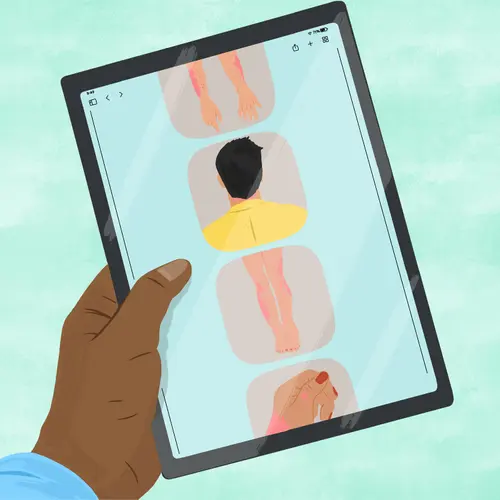By Julie Block, as told to Sarah Ludwig Rausch
For the more than 31 million Americans who have eczema -- the most common form is atopic dermatitis (AD) -- it is so much more than just dry skin. For many with a mild form of eczema, proper bathing and moisturizing can ease symptoms. But those with moderate to severe disease need stronger treatment.
People with eczema tend to have an overreactive immune system that, when triggered by something outside or inside the body, responds with inflammation. Dry skin is one symptom, but people with eczema may also have severe itch, pain, color changes, oozing, cracking, infections, and bleeding. These cases need intensive treatment -- beyond moisturizers -- to calm the immune system and heal the skin.
AD Is Different for Everyone
Atopic dermatitis is known as a heterogeneous, or diverse, disease. There are common signs and symptoms, but many things make AD unique for each person. Dry, irritated, itchy skin is a hallmark of AD, but it can show up differently in children and adults.
Varying skin tones also affect how AD happens. People with skin of color may get darker spots rather than the red patches that are more common for people with lighter skin tones.
Because it can be so different, certain treatments will work for some people but not for others. The medications used now to treat eczema weaken your immune system on a broad scale. Advances in research have led to new therapies that target specific parts of the immune system that contribute to the disease.
We’re hopeful that these therapies will offer more options, not only to relieve physical symptoms but to improve overall quality of life. This is essential when you have to consider the risks and benefits of potential treatments over a lifetime of managing the disease.
More Than a Rash
Eczema is much more than “just a rash.” It’s a complex and serious long-term condition. This is especially true when it’s more severe.
Eczema can affect every part of your life and can cause problems in your relationships and the lives of your loved ones. Things like trouble sleeping, financial costs, unbearable or unrelenting itch, and embarrassment or anger about your appearance can affect your well-being. People with eczema are more likely to have mental health issues such as depression, anxiety, and attention deficit hyperactivity disorder (ADHD).
The lack of awareness around eczema makes it harder for people to first get the validation they deserve of how the disease affects them physically, emotionally, and psychologically. That includes the moms and dads who struggle to treat their children.
Misconceptions can also affect their treatment. At the National Eczema Association, our research team conducts and funds studies that directly address gaps in the understanding of what it’s like to live with eczema. Our advocacy team makes sure that policymakers understand the needs of people with the disease. Through this work, we are able to educate health care providers and boost access to affordable, timely, and effective treatments for eczema patients.
The Importance of Awareness
It’s important to raise awareness of eczema as a serious public health issue. The more people know about the disease and its wide-ranging effects, the more we are able to work toward policies that affect access to care and research funding. Hopefully, this will lead to more and better treatments. Awareness also means fewer misconceptions and more-empowered patients.
The treatment landscape for eczema patients is more promising than ever. After years of stagnant growth, we’re entering a new era of care. Scientific advancements have paved the way for dozens of new topical, oral, and biologic medications. At the National Eczema Association, we’re excited to play an important part in advancing research, raising awareness, and offering resources and support to help manage -- and thrive -- with eczema.

